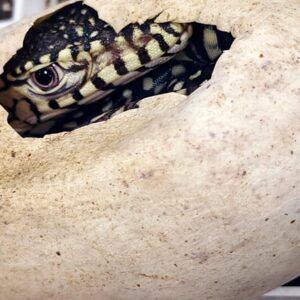YEMASSEE, S.C. — Six monkeys were still on the loose early Monday after dozens escaped earlier this month from a South Carolina compound that breeds the primates for medical research, according to authorities.
Two more Rhesus macaques were trapped Sunday outside the Alpha Genesis facility in Yemassee, bringing the total of recovered monkeys to 37 of the 43 that escaped, Alpha Genesis CEO Greg Westergaard said in a statement relayed by Yemassee Police in a social media post.
Both monkeys recaptured Sunday were examined and were in “excellent condition,” said Westergaard, who was present when they were recovered.
“I can attest with absolute certainty that their spirits were high and they showed all the outward signs of being happy well-adjusted monkeys,” he said. “We are very pleased that the animals recovered thus far are in such good condition, and that they show no ill effects from their outdoor adventure.”
Two other monkeys were spotted near the traps Sunday afternoon and Alpha Genesis planned to begin trapping efforts before dawn Monday and continue through the day.
Forty-three monkeys made a break for it Nov. 6 after an employee at what locals call “the monkey farm” did not fully lock their enclosure, police said.
Alpha Genesis has said efforts to recover all the monkeys will continue for as long as it takes at its compound about a mile (1.6 kilometers) from downtown Yemassee and about 50 miles (80 kilometers) northeast of Savannah, Georgia.
The monkeys are about the size of a cat. They are all females weighing about 7 pounds (3 kilograms).
Humans have been using the monkeys for scientific research since the late 1800s. Scientists believe Rhesus macaques and humans split from a common ancestor about 25 million years ago and share about 93% of the same DNA.
The monkeys pose no risk to public health, Alpha Genesis, federal health officials and police have all said. The facility breeds the monkeys to sell to medical facilities and other researchers.
If people encounter the monkeys, they are advised to stay away from them — and to not fly drones in the area. The company said they are skittish and might run away from where they are gathered.








